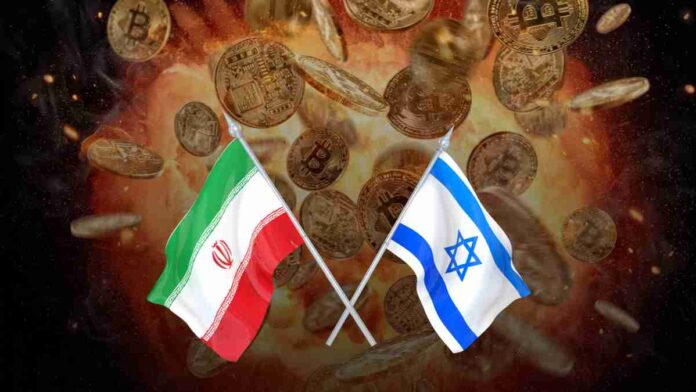The cryptocurrency market, including major digital coins like Bitcoin and Ethereum, experienced a significant downturn. The sharp sell-off coincided with geopolitical tensions escalating in the Middle East following an unprecedented attack by Iran on Israel.
Overnight on Saturday, the cryptocurrency market saw heavy selling, with Bitcoin falling by approximately 8% and Ethereum dropping by up to 10%. This marked one of the steepest declines in over a year for Bitcoin, particularly following a period of strong gains driven by inflows into U.S. spot bitcoin ETFs.
The market movement was captured by global cryptocurrency exchanges, with significant data provided by the Bitstamp exchange indicating the price changes. Bitcoin, which had been trading around $70,000, plummeted below $62,000 before partially recovering.
The sell-off occurred late Saturday evening and continued into Sunday. The timing coincided with U.S. officials confirming that an Iranian drone and missile attack on Israel was taking place, influencing global markets including cryptocurrencies which trade over the weekend.
The sudden drop in cryptocurrency prices is seen as a direct reaction to the increase in geopolitical risks following the attack. It reflects a broader trend where global crises or significant political events can trigger rapid and substantial movements in the volatile cryptocurrency market.
The cryptocurrency market’s reaction aligns with its status as a risk asset, where investors often respond to international conflicts and uncertainties by moving away from more speculative investments. The attack, being the first direct aggression from Iranian territory against Israel, raised concerns over an escalation in Middle East tensions, prompting investors to liquidate positions in digital currencies amid the uncertainty.
In parallel, the geopolitical upheaval has also impacted the Iranian economy, with the national currency, the rial, hitting a record low against the U.S. dollar, compounding the regional economic instability. This financial turmoil across different markets underscores the interconnected nature of global financial systems and geopolitical events.




